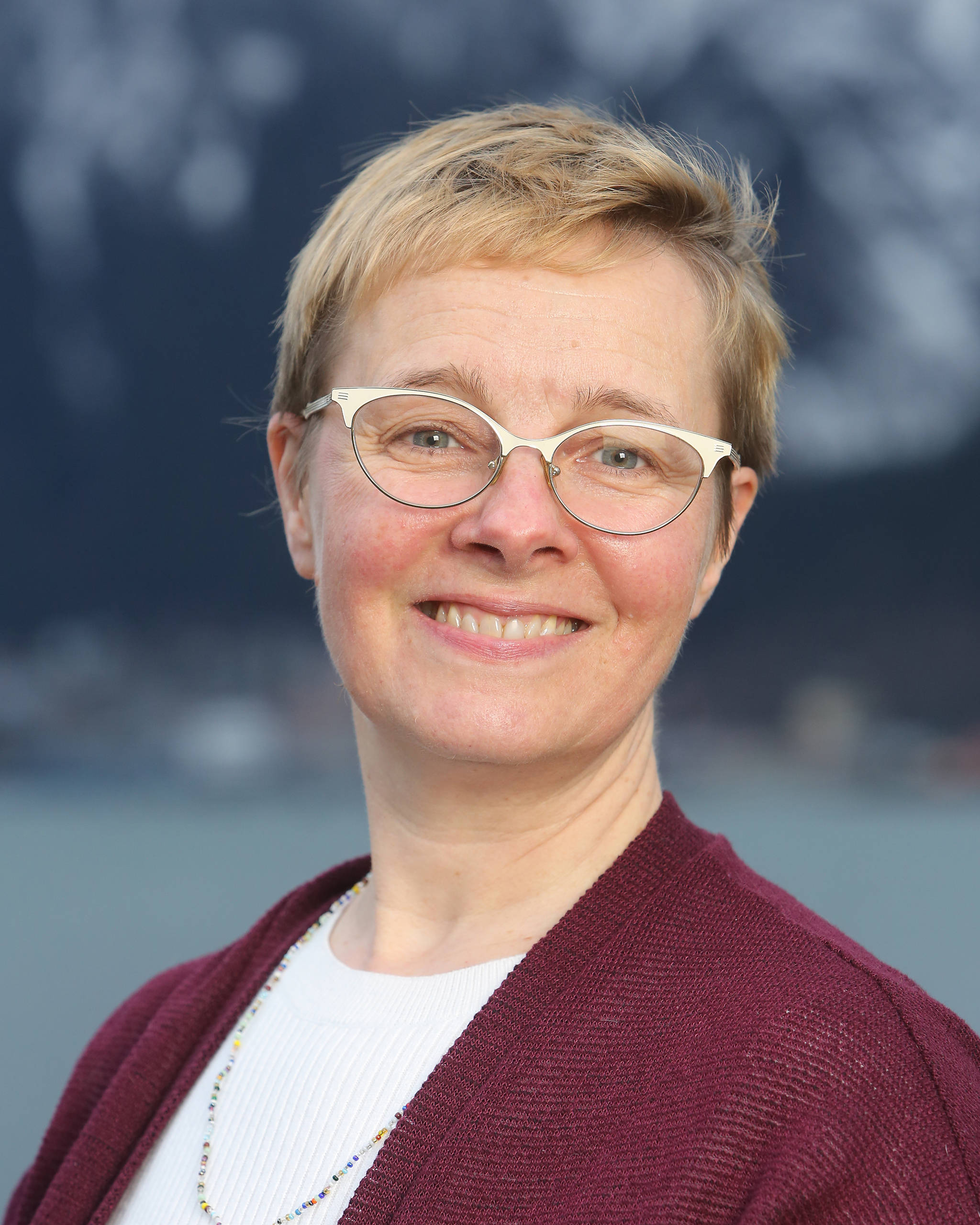By Anjuli Grantham
Sarah Lewis notes she’s out of canned tomatoes in her kitchen cupboard. She heads to her “long-term” food pantry, finding canned tomatoes in there.
Sarah then restocks her kitchen cupboard with the cans from her back up pantry. She adds canned tomatoes to her shopping list and consults a meal planning app (her current favorite is 5 Week Day Meals) to see what else needs to be on the shopping list. When she returns from the grocery store, she puts newly purchased cans of tomatoes in the long-term food pantry and starts making a batch of food for the coming week.
“We need to solve for the pattern instead of for a single problem,” said Sarah, who is a UAF Cooperative Extension Agent for Southeast.
Conscientious meal planning is a good example of this, as it solves several problems at once. It enhances her family’s food security, as the Lewis-Boily family can comfortably subsist during an emergency that limits food access. It follows the “last in, first out,” recommendation of food consumption. It allows Sarah to consider nutritional aspects of her family’s meals. It helps solve (though certainly doesn’t negate) the “what’s for dinner” conundrum. Finally, it limits the family’s food waste. Being deliberate about food means Sarah’s family is deliberate about what they throw away.
Of the 80 top solutions for mitigating climate change, reducing food waste is solution No. 3. It’s surprising that something as simple as reducing food waste is the third most effective way we can meet our climate targets. But the scale of the food waste problem is even more staggering.
[Juneau’s Climate Change Solutionists: Preserving Wetlands and Peatlands with Koren Bosworth]
The USDA reports that Americans trash 133 billion pounds of food in a single year. If food waste was a country, it would be the third largest emitter of greenhouse gases behind the United States and China.
These emissions come from the embodied energy within food — all those carbon-hogging inputs required to make, package, transport and store food. Additionally, that food often originated on degraded agricultural lands which previously were forests, prairies, and ecosystems that naturally sequestered carbon.
At each step along the supply chain food waste occurs, either accidentally or on purpose. An example of accidental food waste is when a freezer fails and the food within becomes rotten. Willful waste, on the other hand, is more common in the developed world. Examples include the culling of knobby vegetables because they don’t fit the ideal shape consumers are accustomed to seeing in the produce section, to trashing the wilted salad greens one forgot to eat the week before. Wasted food might as well not have been produced.
What we call the food system currently operates more as a supply chain. This is a part of the problem, explains Sarah. “We must think of systems, rather than linear pathways. Systems are cyclical and find ways to feed back into the system. The way that the food chain currently works, it’s very linear: store, home, garbage, landfill.”
Systems thinking is what brought Sarah into the realm of food. She started as an architect, a profession that requires holistic thinking to design functional, accommodating spaces. She then pursued a Master’s degree in social work, a field she describes as “helping humans thrive within a system.”
She became a founding member of the Juneau Commission on Sustainability and focused on promoting local foods. Some early JCOS projects included Juneau’s first Local Food Festival and a Saturday farmer’s market. Now, as a Cooperative Extension Agent, she tests pressure canner gauges, trains farmers about food safety, teaches classes on food preservation and family emergency preparedness and helps to revive the lost art of kitchen efficiency.
“Every month I get at least one phone call about what to do with food that’s been in a freezer for a long time,” Sarah said. “The answer: Eat it! Unless the food thawed at some point, it is perfectly fine to eat. There is no expiration date on frozen food.”
The same logic applies to many other food products, including food that’s passed the “best by” or expiration dates. These dates are recommendations based around flavor and quality. Sarah recommends reviving old food by cutting off freezer burn, turning vegetables into pureed soups, or canning other food products to clear up space in the freezer for the next harvest. Be aware of freezer maintenance and temperature control, too. Moreover, she advocates being close to the source of food. When you know a producer— whether fish or farm— you can let them know that the quality is poor, since poor quality food is often wasted food.
Through meal planning, knowing what food a household has on hand, and following best practices in food storage and food preservation, a family can save money on their food bill while reducing food waste. Being conscientious shoppers, harvesters, cooks and eaters are ways that all of us can contribute to the global effort to reduce greenhouse gas emissions.
• Anjuli Grantham is a public historian and museum curator who serves on the board of Renewable Juneau and is Vice Chair of the Juneau Commission on Sustainability. Juneau’s Climate Change Solutionists is a series that features 10 local solutions to climate change and 10 people who exemplify the solutions. The solutions are based on Project Drawdown, a global project that quantifies the most effective methods for halting global warming. The series was produced with support from a Juneau ArtWorks grant. It appears weekly in the Empire.

